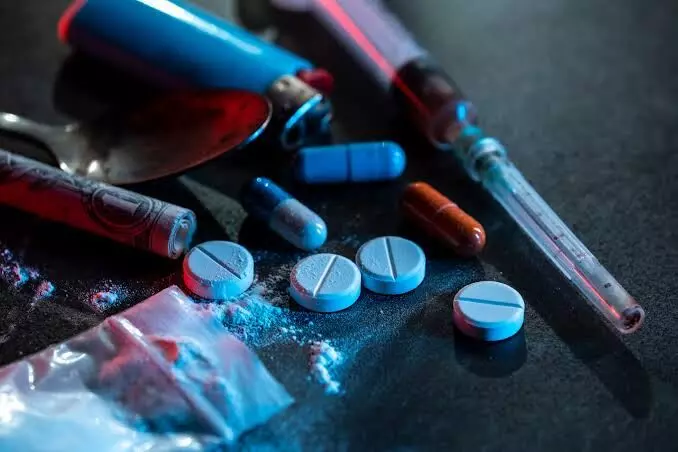Global instability leading to increased synthetic drugs production
Organised drug trafficking groups continue to adapt, exploit global crises, says World Drug Report
By Manish Pachouly
Global instability leading to increased synthetic drugs production
Hyderabad: Recent conflicts in the world have not only taken lives in the connected regions but have also aided in the increased production of synthetic drugs. Besides, it has pushed drug consumption to a historic level.
These are part of the World Drug Report 2025, just released by the United Nations Office on Drugs and Crime (UNODC). The report under the subhead, ‘A new era of global instability is bringing unprecedented challenges to the drug problem,’ said that the conflict and instability continue to offer fertile ground for the production and trafficking of synthetic drugs.
Areas with organised criminal groups
It says that the Russia-Ukraine war has disrupted established routes for heroin and cocaine; however, the production and trafficking of synthetic drugs have expanded. ‘Ukraine has become an important source of illicitly manufactured methadone,’ the report said. Methadone, a regulated drug, is a synthetic opioid and is used medically to treat opioid use disorder. However, it is also highly abused, leading to dependence.
The report added that Myanmar and Mexico, where organised criminal groups are controlling entire communities, remain principal manufacturing hubs for methamphetamine, a synthetic addictive stimulant drug, supplying the two largest markets: South-East Asia and North America.
“This edition of the World Drug Report shows that organised drug trafficking groups continue to adapt, exploit global crises and target vulnerable populations,” said Ghada Waly, executive director of UNODC, in a release.
316 million people used a drug
According to UNODC, about 316 million people used a drug (excluding alcohol and tobacco) in 2023, which is six per cent of the population aged between 15 and 64, compared to 5.2 per cent of the population in 2013.
‘With 244 million users, cannabis remains the most widely used drug, followed by opioids (61 million), amphetamines (30.7 million), cocaine (25 million) and ecstasy (21 million),’ the report said. ‘New groups of vulnerable people fleeing hardship, instability and conflict could cause these numbers to increase further,’ the report warned.
Increase in amphetamine usage
The report stated that qualitative assessments suggest an increase in the use of amphetamines (synthetic drugs) in 2023 and over the last decade. ‘The number of users of amphetamines is highest in East and South-East Asia, with the second largest number of users (and the highest prevalence of use) being in North America,’ the report said.
It added that in 2023, record-high quantities of amphetamine-type stimulants (ATS) were seized, and the seizures continued to be dominated by methamphetamine at the global level. ‘Trafficking in ATS, in particular methamphetamine, has spread geographically, with notable growth observed in non-traditional markets,’ the report said.
Indian youth battling addiction
India too is facing a severe narcotics consumption problem with a large number of people, especially youths, falling into the trap.
The conflict is also going to cause changes in the narcotics trafficking route in the region. Indian Revenue Service officer Sameer Wankhede said that because of the conflict between Israel and Iran, there will be an impact on the heroin trade. ‘We have seen through cases in the past that heroin used to come by road from Afghanistan to Iran and from there in containers through the sea route to the Nhava Sheva port,’ he said.
Rising narcotics consumption has also led the Central government to initiate the ‘Nasha Mukt Bharat Abhiyaan’, which is focused on achieving a drug-free India. Besides, various States have also started campaigns as part of the war on drugs. Recently, the Andhra Pradesh government decided to confiscate the properties of people involved in the cultivation, transportation or sale of narcotics.
Telangana too had jointly with Andhra Pradesh launched a war against the growing drug menace.